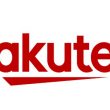FCC: VoIP offerings must include E-911
The Federal Communications Commission today unanimously voted to require voice-over-IP providers like Vonage to connect customers’ emergency calls through the established 911 network while providing location and callback information.
Expedited by new FCC Chairman Kevin Martin, the order requires interconnected VoIP providers–those that let customers send and receive calls to phones on the public switched telephone network (PSTN)–to include 911 service in their standard offering instead of making it an optional feature, as many VoIP providers do today.
VoIP providers also will be required to ensure that 911 calls are delivered to trained emergency operators at the appropriate public safety answering point (PSAP). Today, many VoIP providers connect 911 calls to a PSAP’s administrative line, which may not be answered during non-business hours.
“Anyone who dials 911 has a reasonable expectation that they will be connected to an emergency operator, regardless of the technology they use,” Martin said.
In addition, interconnected VoIP providers must notify existing customers and clearly state in advertisements the limitations of their respective 911 solutions. Many VoIP phones can be moved from one location to another, and a customer using these “nomadic” phones must manually enter their current locations into the system for 911 services to work correctly.
Affected VoIP providers will have 120 days to comply with these mandates after the order is published in the Federal Register. Tom Navin, the FCC’s acting wireline bureau chief, said the order is a “priority” for the commission, which would ask for emergency publication in the Federal Register. Navin said he believes publication will occur within 45 days.
Vonage officials have stated they have a solution to provide E-911 information to PSAPs, but the company needs access to the selective routers typically owned by incumbent phone carriers. The order does not require incumbent carriers to grant such access to unregulated VoIP providers, but it reiterates that incumbents must provide competitive carriers access to the 911 system. Thus, a VoIP provider can access the 911 system through a competitive carrier, if necessary, Navin said.
Commissioners voted on the item after hearing compelling testimony from three families that failed to receive needed emergency services in a timely manner because they were not aware that their Vonage packages did not include E-911 service.
Despite setting up 911 services with Vonage as specified by the company, Cheryl Waller of Deltona, Fla., testified that she was unable to call emergency services from her Vonage phone when her three-and-a-half-month-old daughter stopped breathing on March 24 at about 6:35 p.m.
“I dialed 911 several times. Each time I called, I reached a recording that stated, ‘Hang up and dial 911,’” Waller said. “I was unable to reach emergency services of any kind. In an absolute panic, I was forced to locate a neighbor to dial 911 from a different phone.
“By the time emergency personnel were notified and arrived on the scene, they were unable to help my daughter, and she was pronounced dead at 6:51 p.m.”
Waller said a Vonage representative called her husband 11 days later and acknowledged that Vonage’s 911 service in the Deltona area did not connect to a PSAP. Instead, calls are routed to a non-emergency number in the sheriff’s office, which does not answer the phone when the office is closed, she said.
“It is stated on Vonage’s web site that 911 calls will go to a PSAP,” Waller said. “Vonage purposely deceived me into believing our 911 calls would be delivered to a public safety answering point.”
While thanking the commission for taking action, Waller said VoIP companies should be forced to stop advertising that they provide 911 services until they offer emergency calling through the existing 911 infrastructure and begin financial support the 911 system—immediately.
“While 120 days is a reasonable number of days to compel compliance, 120 days is 120 days is too many to continue to allow these companies to advertise a life-dependent service that they admittedly do not provide. One hundred twenty days is seven days longer than my daughter lived. She died at 113 days [old], because I couldn’t reach 911.”

















